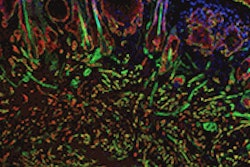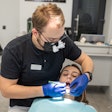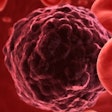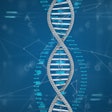Researchers from the University of California, Los Angeles (UCLA) School of Dentistry have discovered what could be a crucial step toward understanding the process that activates cancer cells in head and neck squamous cell carcinomas (Science Signaling, April 30, 2013, Vol. 6:273, pp. ra23).
Very little has been known about the developmental and environmental factors affecting genes that occur prior to the invasive growth of this cancer, the researchers noted.
Led by Cun-Yu Wang, PhD, DDS, a UCLA School of Dentistry professor and cancer scientist, the group identified the key epigenetic factor KDM4A, which modifies the molecular activation process of protein AP-1. AP-1 is known to regulate gene expression and promote metastasis of squamous cell carcinoma. Their findings show that squamous cell carcinoma's invasive growth could potentially be repressed by targeting KDM4A.
The researchers compared two groups of mice with squamous cell carcinoma -- one with low levels of KDM4A and one with higher levels of the enzyme. They found that the depletion of KDM4A significantly inhibited squamous cell carcinoma from invading and spreading into the mice's lymph nodes.
By understanding the mechanics behind the gene activation process of the AP-1 protein, the researchers were able to isolate the KDM4A enzyme. They discovered that the enzyme is required for turning on the genes that promote the activation of AP-1, which is responsible for the growth of the squamous cell carcinoma tumors.



















